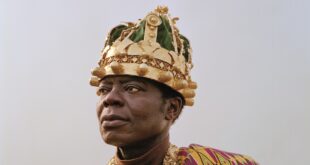By Tigist Selam
Do you believe that the wind blows, because someone says, ‘Wind, blow now’?
Do you believe that the stars in the sky are shining, because someone switched them on?
Do you believe that the elements are doing what they are supposed to and not what they want to?
If you do believe that, then you will never see and understand what I say that I want to be free.
Free like a wind when it blows.
I want to be free, free like the star in the sky.
I want to be free, be free.
– Xavier Naidoo
In 2000, Alberto Adriano, 39, from Mozambique, was brutally killed by drunken neo-Nazis in East Germany, in the city of Dessau. Alberto had been living in Germany for twenty years and was looking forward to visiting his home country for the first time in many years with his German wife and three children. The neo-Nazis who attacked Alberto openly admitted to hating foreigners, which consequently stirred a national debate on racism in Germany. Even then Chancellor Gerhard Schroeder paid a visit to the crime scene in Dessau, symbolising his determination to eradicate racism in Germany.
But Alberto’s case was not uncommon in Germany and created a furore in the nation’s Black community. Something must be done, something must be said. Xavier Naidoo co-founded Brothers Keepers with various Black German artists, including Afrob, Torch, Adé (Bantu), Tyron Ricketts and many others. The group dedicated themselves to anti-racism in Germany through music and education.
Brothers Keepers’ debut song was Adriano (fighting back): “This is something like a final warning/ As we have been planning our counterstrike for a long time/ We intervene where you emerge/ At last, we offer resistance to your brown shit/ ’Cause what you want is the end/ And what we offer are clenched fists and not our hands/ Your downfall for ever/ And what we’ll hear is your crying and your whimpering.”
For the very first time in German history, people of colour were showing resistance against racism through mainstream media, appearing on Germany’s music television stations VIVA and MTV as a collective. It was a very strong statement to Germans and non-Germans alike, opening the door for other artists, and the public at large, to come out and speak openly about racism.
Brothers Keepers’ proceeds from Adriano were donated to Alberto’s family. The song stayed in the Top Ten charts for six weeks, drawing even more attention to the issue. In addition to the group’s public appearances and countless interviews, their song became a tool to bring another perspective to the debate: the empowerment and resistance of the African Diaspora. Adriano remains the leading song, or even an anthem, to the anti-racism movement in Germany.
Moreover, German hip hop was not only internationally recognised, but also in the forefront of “conscious hip hop” in Europe. Xavier lent his star power and musical talents to Brothers Keepers and the movement. He recalls: “In those days we all had the feeling that any of us at any time could be the victim, but we did not want to remain in the role of passive victims any longer.” Born in 1971 in Mannheim to South African parents of Indian, Arab and German descent, Xavier Kurt Naidoo grew up under the teachings of the Catholic Church and attended gospel choir as a child. And these early influences are readily traceable in his music today. He uniquely weaves politics and spirituality into his music, making him a pioneering artist and activist at the same time.
With the song Frei sein (To be free), Xavier, in collaboration with Sabrina Setlur, he immediately landed in Germany’s top charts in 1997. Since then he has released eight albums and is celebrated as one of the most successful recording artists in Germany’s history.
On his next album, Zwischenspiel / Alles Fuer Den Herrn (Interlude / Everything for the Lord), Xavier again doesn’t seem to shy away from controversy. With his song Bevor Du gehst (Before you go) and accompanying contentious music video modelled on Stanley Kubrick’s Eyes Wide Shut, Xavier once again surprises his audience with ground-breaking sound and images. Even though it is ambiguous whom Xavier is referring to, one can interpret the song as preachy and judgmental: “So you must’ve added it up/ It’s not only me who suspected it/ For you don’t have the deeds/ that correspond with the path that you’d cleared/ Yet how everyone believed in you/ Everyone went to you/ Those who so many robbed/ Shared their greed with you/ Lord, let me fight with them too/ Those who prophesised your eternal fame/ For they lied and fantasised that/ They would rule the world with you.”
Xavier has been labelled a fundamentalist in mainstream media. But in his defence, he states: “When one portrays me as a fundamentalist, then that is not right. I let everyone have their own beliefs, even though I am critical of the Catholic Church. But we are talking about soul music, which lives from being open and from the soul. And that is what I do. But a lot of people don’t want to have anything to do with faith; people think it’s too controversial.”
In Germany, the state and the church are not separated. Mandatory religious studies are introduced during primary education, giving young Germans the option of Catholic or Protestant subjects to study. Even today, the CDU, the Christian Democratic Union, is one of Germany’s leading political parties. However, popular culture is not associated with religious beliefs, and to have a multi-platinum-selling song that refers to the Bible is unheard of.
Xavier openly criticises the church for not talking about taboo topics such as sex. When he is pinned down as a fundamentalist or a Christian radical, he humbly replies that his fearlessness is rooted in his deep belief in God. Xavier remains unperturbed by this negative press, choosing instead to apply his time and efforts to his music. He is extremely private, never doing more than a few big interviews with the release of an album, which only adds to the mystery behind the music.
Beyond the spirituality and politics, Xavier, it must be admitted, is a romantic and can’t stop singing about love. Even though he sings primarily in German, he collaborated in 2003 with the US-based artist RZA (Wu Tang) on the song Ich kenne nichts / I’ve never seen on RZA’s album The World According to RZA. It was an instant hit and at the top of the German charts for several consecutive weeks.
Ich kenne nichts, recorded both in English and in German, begins with RZA’s smooth intro: “You know they say/ In every man’s life, there comes a time/ When you get struck by the arrow of Cupid/ By the love of God, or the beauty of a woman/ Sometimes this love brings thunder into your life/ and it brings the storm — sing about it.” Xavier then sings wholeheartedly: “There is more to love than this/ Love is more than just a kiss/ Will we take you to that step/ Will we do more than just connect/ And will you bring the thunder in my life/ And the fire in my eyes/ Cause then there will be days of pleasure/ And everything far will be so near/ I have never felt thunder/ and lighting like this/ I have never been struck/ By a wonder, a wonder like this.”
Only two years later, Xavier releases Telegramm fuer X (Telegram for X), with the introspective single Dieser Weg (This way), in which he honestly talks about his path: “So, I went along this street/ And this street led me to me/ The song you sang on the last evening/ Is playing in my mind now/ Just a few more steps/ And there I was with the key to this door.” In that same year, Xavier and Soehne Mannheims visited Tel Aviv, Israel. At the beginning of their concert, he sang in Hebrew a popular and ancient prayer Adon Olam (God of the World). Given Germany’s past, this created a historic moment, having Germans and Israelis in the audience. This strengthening of German-Israeli relations was acknowledged by the German ambassador Rudolf Dressler and other German diplomats who attended the concert.
Xavier’s celebration of German culture goes even further with his song Danke, dedicated to the German national team during the World Cup in 2006. No other musician displayed such gratitude and support to each player of the team in song. He singles out every player and says something uniquely true about each one that strengthens the team as a whole. He gives respect to the team, while encouraging them at the same time: “If someone fights like you, they are allowed to lose/ The people love you, which will motivate you.”
Xavier’s ability to communicate his own complexity in simple poetic lyrics continues to allow him to reach mass audiences through his unique mélange of soul, R&B, hip-hop and even gospel music. His humility only enhances him, always leaving us longing for more. But Xavier Naidoo remains true to his conviction that music is a universal language, never failing to inspire us to be free: Frei sein.
 THE AFRICAN COURIER. Reporting Africa and its Diaspora! The African Courier is an international magazine published in Germany to report on Africa and the Diaspora African experience. The first issue of the bimonthly magazine appeared on the newsstands on 15 February 1998. The African Courier is a communication forum for European-African political, economic and cultural exchanges, and a voice for Africa in Europe.
THE AFRICAN COURIER. Reporting Africa and its Diaspora! The African Courier is an international magazine published in Germany to report on Africa and the Diaspora African experience. The first issue of the bimonthly magazine appeared on the newsstands on 15 February 1998. The African Courier is a communication forum for European-African political, economic and cultural exchanges, and a voice for Africa in Europe.












